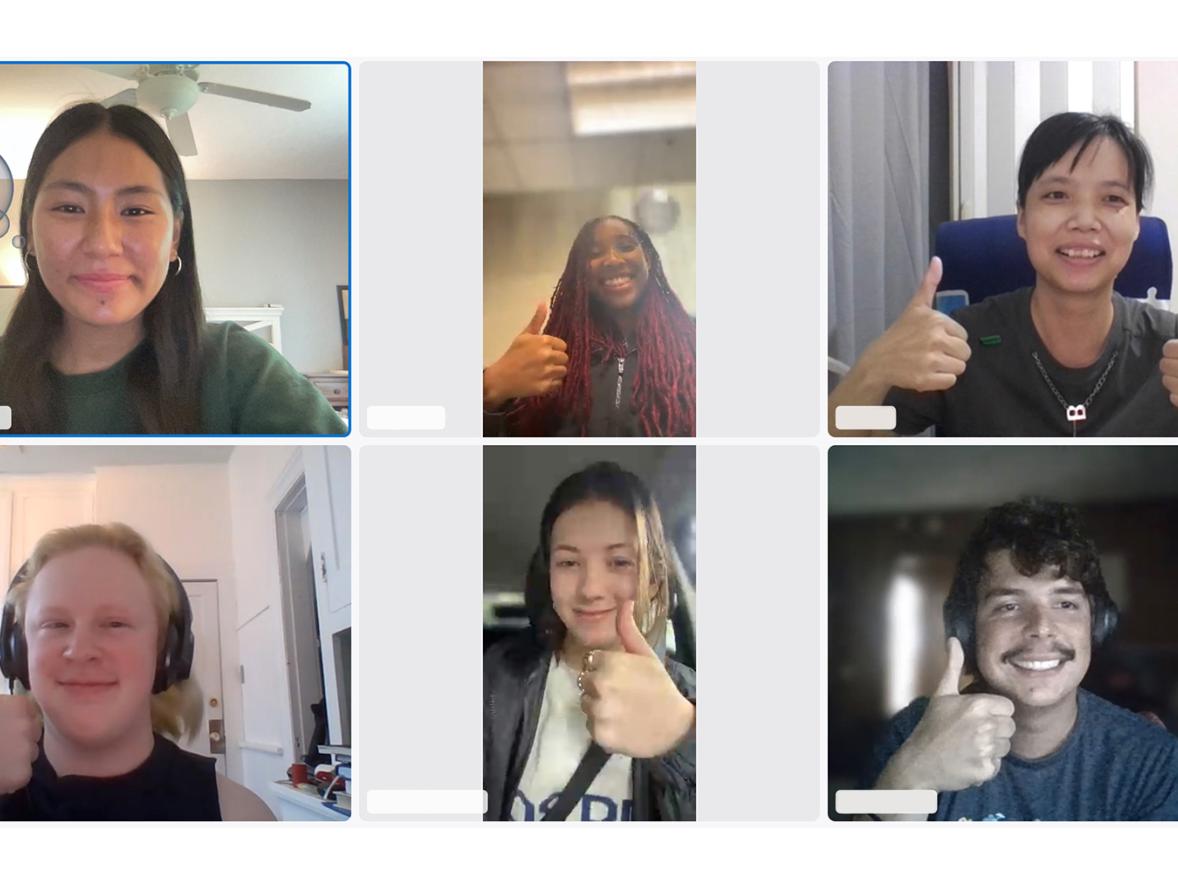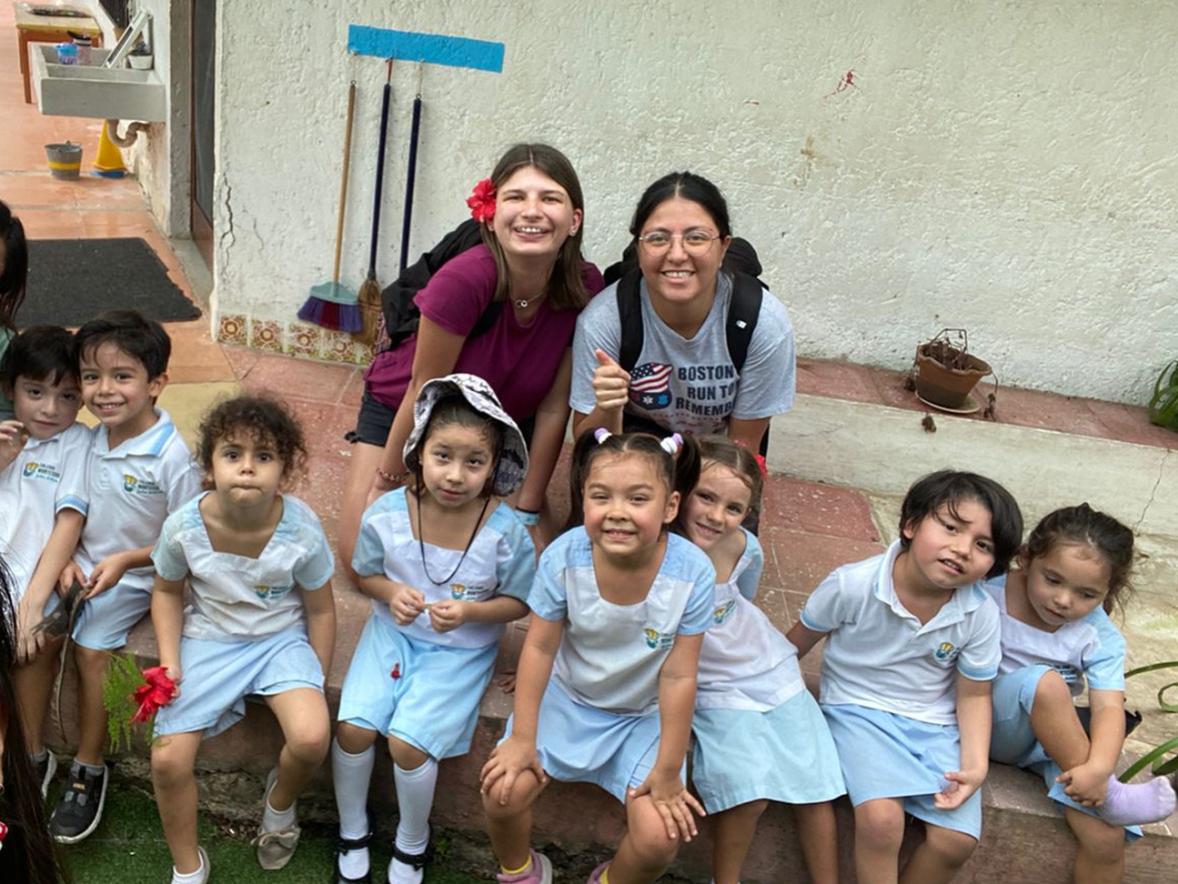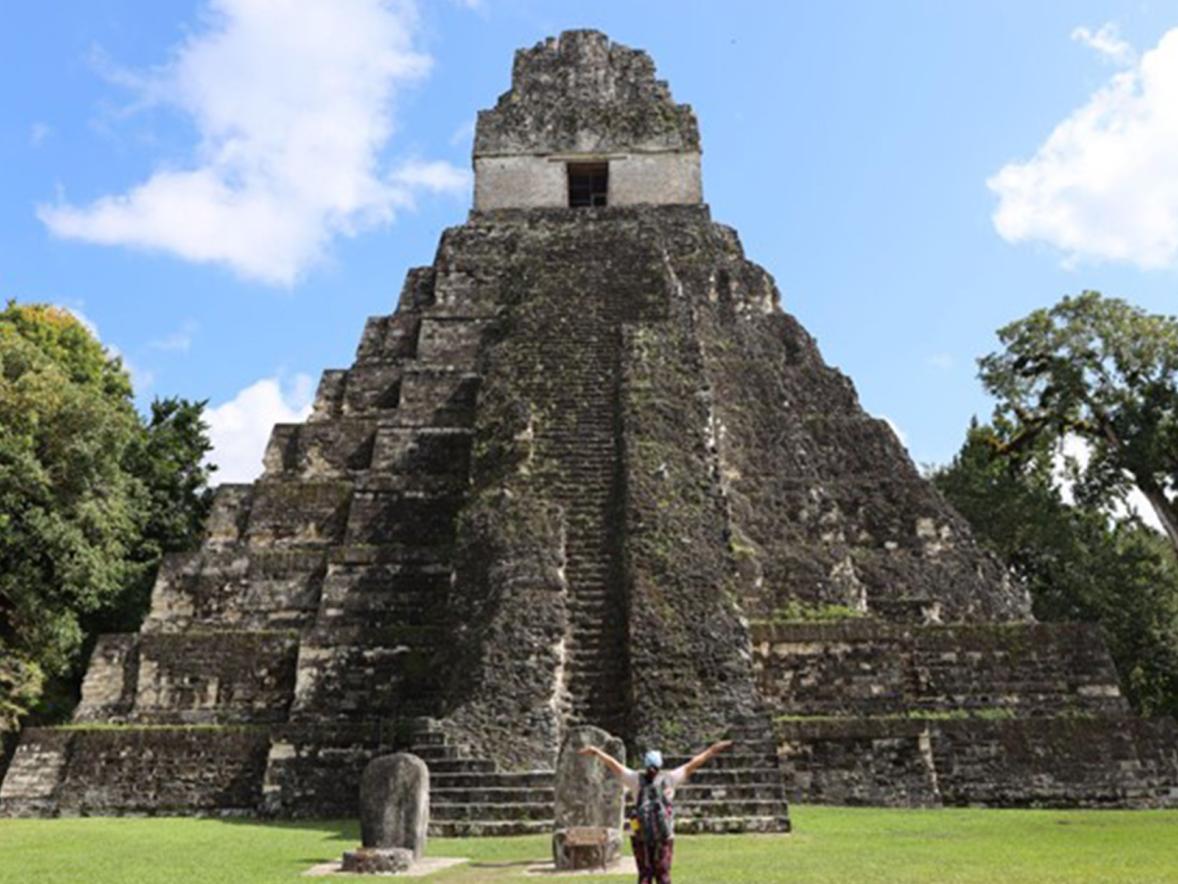Four international students from the University of Wisconsin-Stout had the opportunity recently to join in a virtual conversation with members of Chippewa Valley Learning in Retirement.
CVLR members take part in the Foreign Policy Association’s Great Decisions discussion program, an annual nationwide series on world affairs. The program provides videos on eight topics and serves as the foundation for group discussion.
Topics this spring were Climate Change and the Global Order, India and Pakistan, Red Sea Security, and Modern Slavery and Human Trafficking.
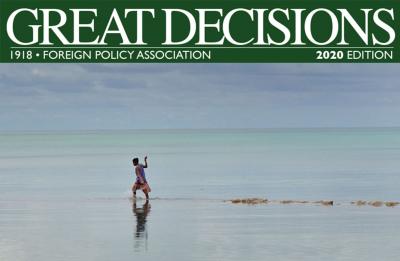
For the conversation about India and Pakistan, Howard Lee, retired UW-Stout professor and CVLR member, reached out to UW-Stout’s Office of International Education to invite international students to share insights into their respective countries.
Assistant Director of OIE Danielle Clarizio, Vaishnavee Patil and Rushali Mistry of India, and Aiman Faiz and Sanjna of Pakistan joined the conversation, which was held virtually via Zoom. Patil and Mistry are in their master’s for food and nutritional sciences, Faiz is studying computer science, and Sanjna is studying psychology.
Religion and politics in the world’s largest democracy
CVLR member Ellen Ochs moderated the conversation. “The crux of the video was about the relationship between India, Pakistan and Kashmir and the changing dynamics due to strong religious beliefs,” Ochs explained.
A rise in Hindu nationalism, led by India’s Prime Minister Narendra Modi, has increased conflict in the subcontinent. In August 2019, after Modi’s re-election, India abolished Article 370 of its constitution, which gave the people of Kashmir autonomy to decide the future of their state.
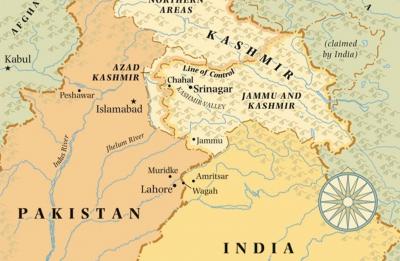
“Since August 2019, Jammu and Kashmir is in complete lockdown,” Faiz said. “The condition over there is the worst. People are dying in the hundreds. In that part, there is forced Indian military.”
Joe Hagaman, like Lee, is a retired UW-Stout professor. He thought the students’ voices were very valuable to the conversation. “They were very passionate in how they expressed their thoughts about the issues facing their countries,” he said. “But they spoke in a friendly demeanor even to the opposition. They spoke from the heart.”
Faiz enjoyed the virtual conversation and appreciated CVLR’s interest in learning more about India and Pakistan. “It was a very pleasant pleasure sharing about my country and learning about Indian culture,” she said. “We got a golden opportunity to represent our countries in a country that is ruling the world.”
More conscious of the world around us
Hagaman, Lee and Ochs are experienced world travelers. Ochs has sponsored exchange students and works with OIE students through the Menomonie Rotary Club.
“I appreciate talking to people who represent different cultures,” Ochs said. “You learn so much with relations to travel versus staying in our country. And now, being stuck at home, the conversation was an intellectual treat.”
Many CVLR members, however, had never met or spoken with an international student before. “For those members, it was the icing on the cake to share a conversation,” Lee said. “The conversations help members become more conscious of the world around us.”
Typically, CVLR meets at the Menomonie Senior Center. Sixty-four members had signed up for the India and Pakistan conversation, but only about 25 members were able to join the Zoom meeting. Hagaman, who organized the virtual meeting, said, “Zoom is a different animal.”
Because many CVLR members do not have Internet access or experience difficulty with Zoom, the group may postpone its involvement in the Great Decisions series this fall.
They’re also concerned with challenges arising due to the coronavirus, as members of CVLR are in the higher risk population, Hagaman explained.
Future Great Decisions topics include artificial intelligence, China and Latin America, and U.S. relations with the Philippines and the Northern Triangle. CVLR hopes to invite UW-Stout’s IT faculty and students and would love to have more international students join the conversations.
OIE supporting international students
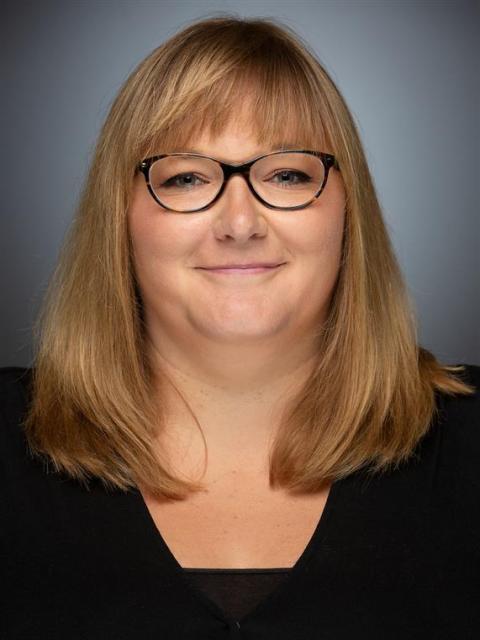
“The conversation was robust and covered many subjects, not just those raised in the accompanying video,” Clarizio said. “The session was a great opportunity for our students to connect with members of the community but also to speak about their home countries, which many students are currently not able to return to.”
This spring semester, 139 students from 30 countries are enrolled at UW-Stout. When the COVID-19 pandemic reached the United States, international students had the option to return to their home countries.
“But the majority of our students have remained in Menomonie and the local area,” Clarizio said. “Students still residing on campus can continue to do so if they do not have an alternative at the end of the school year.”





